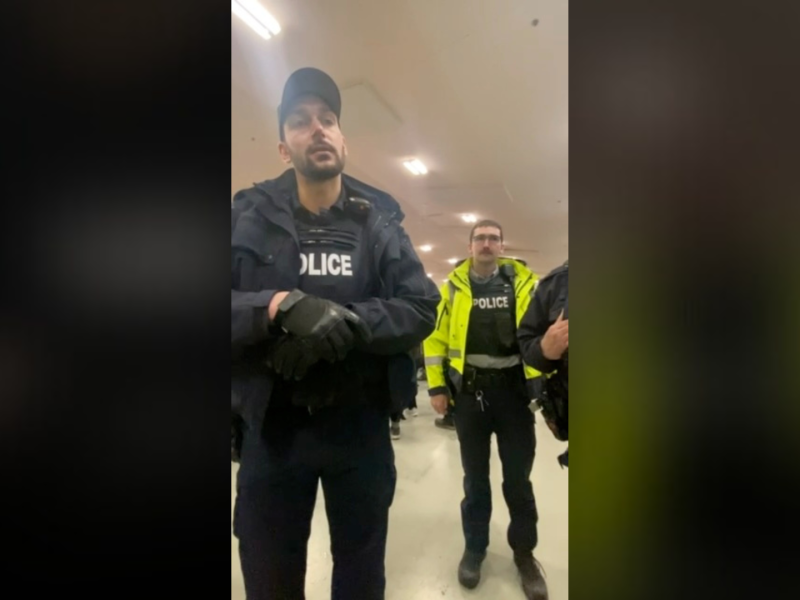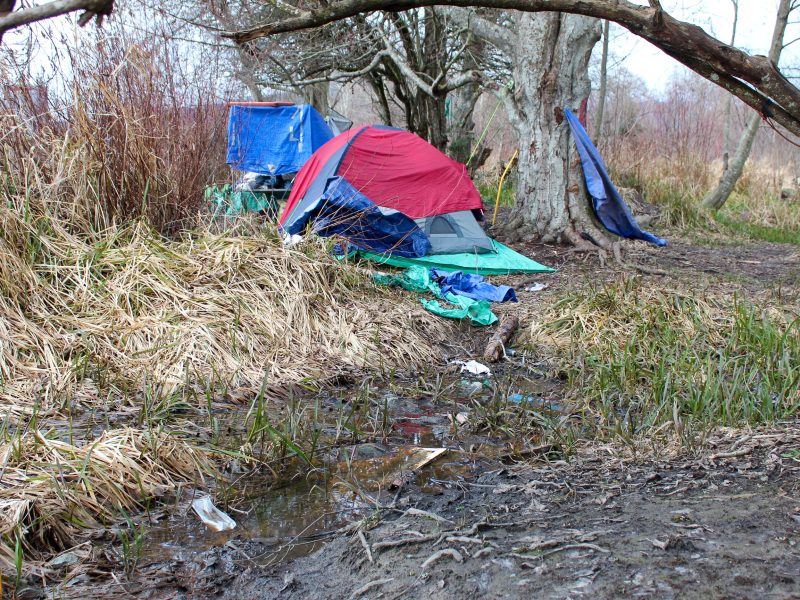
Tafadzwa Matamba often recalls his upbringing in rural Zimbabwe. From the lively Mbira music to the learnings from his farming family, he carries stories from home wherever he goes.
“I came to Canada as a storyteller,” Tafadzwa says.
He’s been working to share those stories with the Cowichan Valley community for about a decade and now has the opportunity to feature them on screen.
Tafadzwa was recently awarded a $20,000 grant to produce his own film. The grant is part of Storyhive’s Black Creators Edition, in partnership with the Black Screen Office, which aims to bolster the work of 30 Black creators across Canada.
For Tafadzwa, this opportunity came just at the right time.
In the fall, life shifted for Tafadzwa and his wife, Amy. The couple used to live on a property on Cowichan Lake Road, which they named Little Zimbabwe Farm. They combined Tafadzwa’s agricultural knowledge from Zimbabwe with the couple’s love for food and music in an attempt to create a place of community and gathering, and they were successful for a time. They started making and selling chicken, beef and vegetable pies, and still do to this day.
Related article: Little Zimbabwe Farm offers a cultural exchange through food and music
But the COVID-19 pandemic brought on hard times, and after many difficult blows, the couple had to relocate.
“We left our farm; we lost it,” Tafadzwa says.
A community member and friend took the couple in and offered them a home on a new farm, not far from the old one.
Looking to turn their attention to other opportunities, the couple looked for acting jobs on the Island through a Victoria-based talent agency. Tafadzwa says he heard through a friend that the company was looking for more diversity in its talent pool, so he signed up.
The couple worked on commercial and film shoots and Tafadzwa landed himself a role as a background actor in the Netflix television show, Maid. There, in a scene in a café, appeared Tafadzwa — or rather his arm and his dreadlocks.
“Growing up, I wasn’t often in the background. I’d play roles like the prince or the king. But sometimes you have to eat your humble pie,” Tafadzwa says with a laugh.
Tafadzwa has also starred in music videos for Mbira Spirit, the band he formed with his wife.
The pair are local favourites for their high-energy roots performances, and gained a large national and international following in the early days of the pandemic for their uplifting virtual performances on the “ULTIMATE ONLINE NOVA SCOTIA KITCHEN PARTY (COVID19 EDITION)” Facebook group.
The couple will perform in Duncan City Square at 7 p.m. on Friday, Feb. 18, on the opening night of Cowichan RainFest.
Getting involved in local film shoots has been a great start for him, Tafadzwa says, and inspired him to seek out opportunities that provide more visibility for BIPOC (Black, Indigenous and people of colour).
That’s when Storyhive came into the picture. A friend suggested Tafadzwa apply to the Black Creators Edition fund so he can continue to share his experiences, knowledge and stories with people. Tafadzwa was taking classes in 3D animation to help further his storytelling efforts at the time as well. So he applied, aspiring to gain some mentorship and a budget to lift up his work.
But after several declined grant applications over the years, Tafadzwa says his hopes weren’t too high.
“Then, bam! An email comes that says, ‘Congratulations, you’ve been accepted!’ It was so amazing to get a budget,” Tafadzwa says. “It’s empowering. I’ve been crying about my dreads and elbow in a TV show but we’re now given the opportunity to tell our stories.”
It was settled. Tafadzwa’s project, “The Journey of the African Storyteller,” would go ahead.
This project will be a culmination of Tafadzwa’s experiences as an African storyteller in Canada, the history of his ancestors and relations and folk stories from Zimbabwe. It will feature a mix of live acting and animation.
The film will be geared for all audiences and will also include some journeys through time and space, Tafadzwa says.
“I’m so fortunate that I wasn’t sold but we know slavery happened so there’s going to be some time-travelling to show that history,” Tafadzwa says.

He then starts to walk towards a goat pen on the property he now calls home. One of his jobs is to feed the goats and tend to them. As he approaches, a goat hops over the fence with ease to say hello while the rest of them keep grazing away.
Tafadzwa interrupts the conversation and shouts “Al Capone!” with a smile. The goat is an escape artist, he explains.
As he walks past the goats and behind the farmhouse on the property, large tractors come into view.
“Growing up, when I was really little, we’d go to the village and help farm,” Tafadzwa recalls. “We’d use ox-drawn ploughs and, this late uncle of mine, he would drive the plough and say ‘Young man, I’m John Deere!’ Now when I see a real John Deere tractor I don’t know what to feel. This is what my uncle would dream about.”
With the tractors in view and a large field behind him, Tafadzwa remarks how amazing his life is, despite the difficulties he’s faced. He says he wants his film to be successful not just for the BIPOC community in Canada, but for his family and village in Zimbabwe.
“I have a lot of people looking forward to my help. Like my mother; I don’t want her to die without ever having running water,” Tafadzwa says. “This is for my whole village. I just hope that I can be successful for them.” [end]



